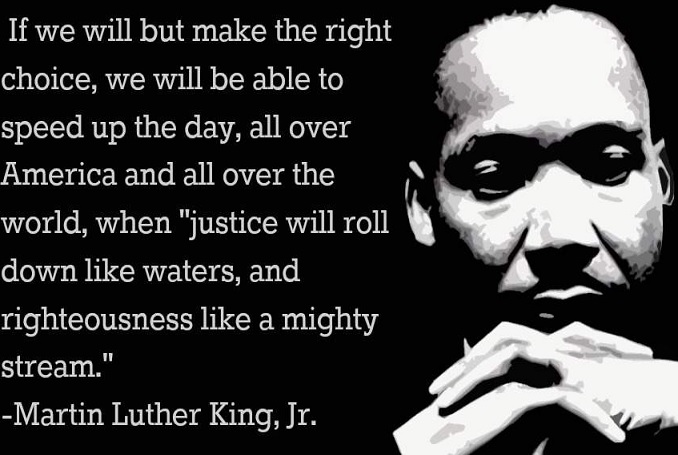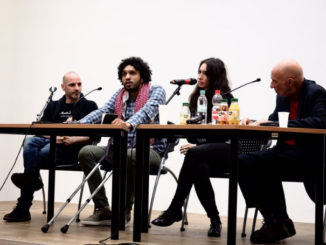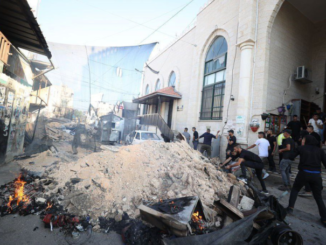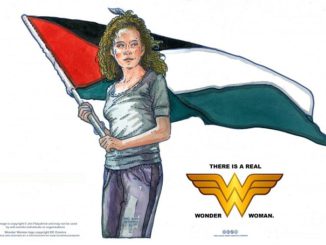
By Benay Blend
Martin Luther King Jr. famously said that “the arc of the moral universe is long, but it bends towards justice.”
On August 11, a coalition of liberal Jewish groups, across the country met to protest various abuses carried out by government agencies: detained children; Muslim bans; immigrant communities terrorized and split apart by Immigration and Customs Enforcement (ICE)—all driven by racism and xenophobia unleashed by the Trump administration.
Spearheaded Bend the Arc: Jewish Action and T’ruah: The Rabbinic Call for Human Rights, the call to action explained that the gatherings were in response to a request from the immigrant-led organization United We Dream which asked allies to hold demonstrations outside of ICE offices nationwide.
The recent round of protests was held on Tisha B’Av (Aug. 10-11), marked on the Jewish calendar as a day to mourn the destruction of the Holy Temple in Jerusalem. Their arc included shameful events in their own country but did not heed King’s other words, that “justice is indivisible,” for they excluded injustice beyond their borders.
As a Jewish activist allied with the Palestinian struggle, I went on high alert regarding the timing of these events, the cast of characters, and more importantly, who is left out of the picture.
In her latest book Freedom is a Constant Struggle: Ferguson, Palestine and the Foundations of a Movement (2016), Angela Davis highlights the need for transnational solidarity between social action groups. In particular, she asks that movements no longer consider Palestine a marginal concern, but instead place it at the center of their agendas. Reminding us that we have to always globalize our thinking, Davis claims that Progressive Except Palestine (PEP) is not acceptable given the ways that Israel and the United States exchange information that harm our most vulnerable communities.
Tisha B’Av, marked as one of the saddest days on the Jewish Calendar, seemed an appropriate date to also mourn abuses that are increasing in our country. Riffing off of Angela Davis, though, where is the lamenting for Palestinian children held in detention, and for Palestinian families torn apart by unwarranted arrests, extralegal murders, bombing raids, etc.
Moreover, writing in the Electronic Intifada, Tamara Nassar reports that Eid al-Adha, or the Feast of the Sacrifice, coincides this year with the Jewish holiday. Instead of being allowed to pray in peace, Israeli police stormed al-Aqsa mosque in Jerusalem, injuring dozens of participants.
When we protest the Muslim ban, the turning away of asylum seekers, and the wall, its important to look at why people come to the very country that has contributed to their misery at home. Our tax money goes to Israel and elsewhere in the form of military aid that allows these atrocities to happen; our congressional representatives do not speak out for fear of losing campaign contributions; and there is no mention in the call for this protest regarding how our foreign policy contributes to asylum seekers here.
This should come as no surprise since some of the organizers are either liberal Zionists, as is J Street, or, like Bend the Arc, refuse to take a stand on Palestine altogether.
In an open letter published in Mondoweiss, Jews of Color, Mizrahi, and Sephardi Caucus called on Bend the Arc to transcend “borders to dismantle white supremacy, fascism, racism, islamophobia, and patriarchy, “ and recognize “the connections between interlocking systems of oppression.”
Seeing no difference between Trump and Netanyahu, they conflate groups targeted in this country “with those who experience inhumane and unethical practices, policies and laws against them in Israel, which the institutional Jewish community” either actively supports or otherwise abets through their silence.
Reacting to the Haaretz headline that proclaimed last weekend’s protests as a “deeply Jewish thing to do,” Rima Najjar replied on Facebook: “It is a ‘Jewish thing’ to resist—unless ‘the thing’ is an #APARTHEID, racist Jewish state.” That seems to have pretty much been the case.
Philip Weiss, writing in Mondoweiss (January 20, 2019), states that Michelle Alexander has “changed the discourse about Palestine in one explosive swoop.” Weiss has himself broken the silence that Alexander says has shrouded discussion in this arena. Most of what has passed for discourse has been heavily weighted towards the Israeli perspective, leaving Palestinians largely voiceless. Partly out of fear for their careers, students and scholars have been afraid to speak out.
As Weiss asserts, Alexander, too, admits to having been Progressive Except Palestine, specifically because she has wanted to write about racism closer to home without the worry of being smeared in a backlash. On MLK Day 2019, Alexander drew on King’s courageous opposition to the Vietnam War at a time what that was not a popular stance, especially for a leader who was warned that a backlash might hurt the civil rights movement. In his Riverside Church Speech (April 4, 1967), King said the following:
“I come to this great magnificent house of worship tonight because my conscience leaves me no other choice. A time comes when silence is betrayal. That time has come for us in relation to Vietnam.”
As the Vietnam War was for King the great moral crisis of his day, so for Alexander the Palestine/Israel conflict is “one of the great moral challenges of our time,” a “human rights nightmare” in which she likens Israel’s practices to apartheid in South Africa and Jim Crow segregation in the United States.
If we are to honor King’s actions, she continues, rather than whitewash the man, then she feels the time has come to speak out on Israel’s actions. I don’t believe that this can happen when groups and individuals who claim to be anti-Zionist agree to work with groups who support the white supremacist state of Israel. The moment is ripe for such a shift if those in the solidarity movement can summon the moral courage to follow King’s actions, not just repeat his words, and finally, as Angela Davis instructs us to do, expand the arc of justice to include Palestine.
– Benay Blend received her doctorate in American Studies from the University of New Mexico. Her scholarly works include Douglas Vakoch and Sam Mickey, Eds. (2017), “’Neither Homeland Nor Exile are Words’: ‘Situated Knowledge’ in the Works of Palestinian and Native American Writers”. She contributed this article to The Palestine Chronicle.

– Benay Blend earned her doctorate in American Studies from the University of New Mexico. Her scholarly works include Douglas Vakoch and Sam Mickey, Eds. (2017), “’Neither Homeland Nor Exile are Words’: ‘Situated Knowledge’ in the Works of Palestinian and Native American Writers”. She contributed this article to The Palestine Chronicle.







